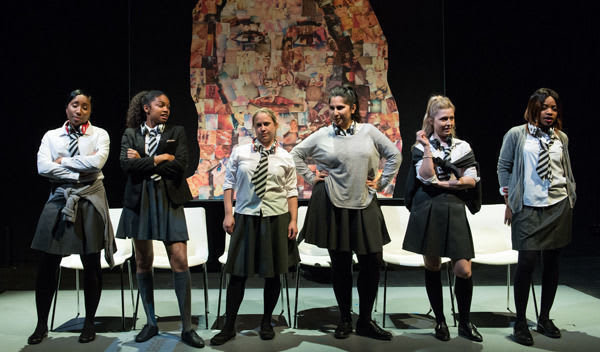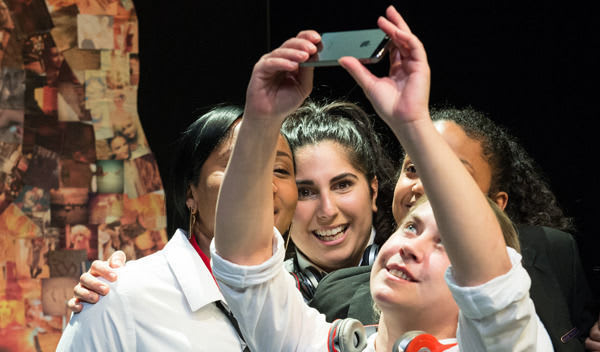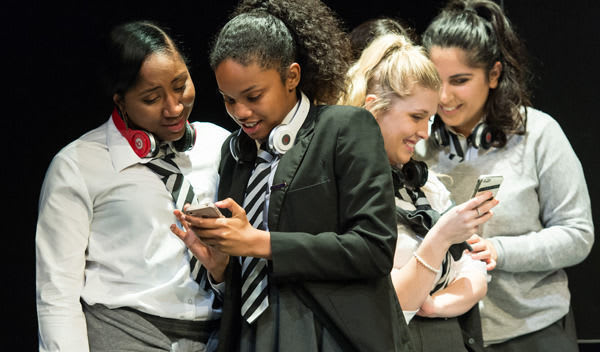Girls Like That presents an example of just what dangers lie in sending inappropriate images and messages by e-mail and social media.
It is simply staged with just a row of chairs in front of a portrait collaged from a mass of images downloaded from those people have publicly posted on the Internet. In front of it is a row of six plastic chairs, one for each member of the cast, on which the logos for Facebook, Twitter and other Internet symbols are projected.
That sets the play’s environment precisely. Its action, which spans school years and beyond, is in the classrooms and public spaces of St Helen’s School where a group of six girls, who meet at in-take, bond and progress together through their whole school careers, but the plot centres on the occasion when someone sends a naked picture of one of them by e-mail. In no time it has gone viral, first through the girls and then the boys at school as well.
Kids can be cruel, sometimes quite knowingly and, as in Kathy Rucker's Crystal Springs seen earlier this year, we see how bullying and social media can working together, though here the situation is not that of the bully but rather the strict strata of female grouping and the need to fit in with your peer group.
Placey, who based his script on interviews and actual remarks made by schoolgirls, makes a clear comparison between the way in which hen-house hierarchies are established and those that develop among girl groups. Boys, it seems, don’t accept their place so easily.
The script is an almost continuous narration. What snatches of dialogue there are, are part of it, but it is divided statement by statement among the six actors who play it with impeccable timing to flow both emotionally and dramatically.
Key moments in school life are picked out and as a project for a history class the girl who is victimised researches her own family background to trace staging posts in the story of women’s liberation. This intriguingly positions that rebellion against the group behaviour.
Director Esther Baker keeps her production constantly moving and generating interest and her lively young cast have the knack of making easy contact with the audience. From an open discussion session after the performance, I learned that they developed their characters in rehearsal as they sorted out who would deliver which statements. As character become more established, they might reject some lines as wrong for that girl and they would go to another.
The result is a set of six very clearly defined characters played with conviction by Leona Allen, April Hughes, Shazia Nicholls, Dominique Olowu, Carrie Rock and Danielle Vitalis all creating interesting personalities. Their performances gripped the attention of a teenage audience—and not just the girls, the boys too.
This is a play that can act as a warning about Internet dangers but it also seems to be one in which identification with their own experience seems to be something many youngsters may be feeling.


